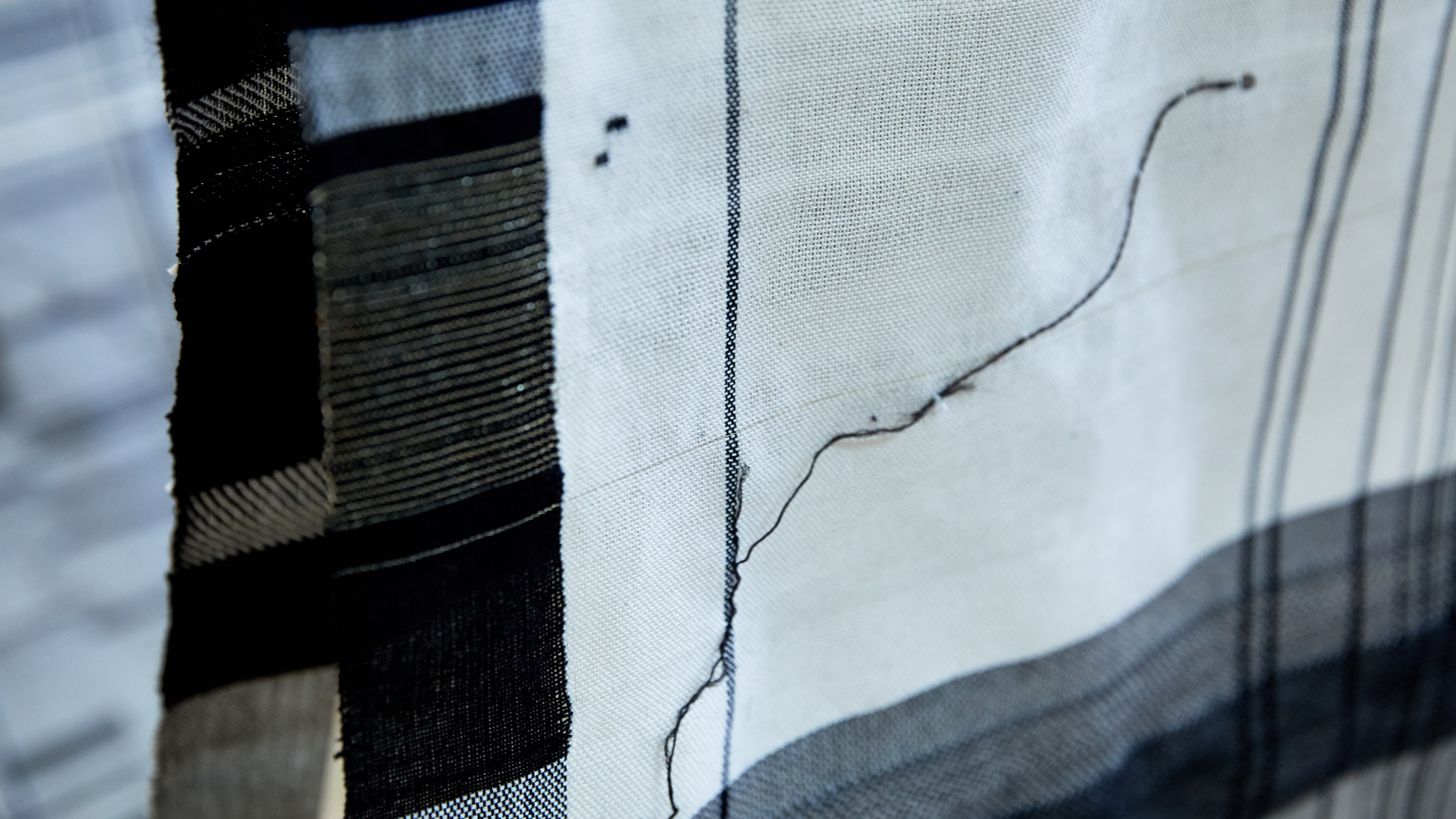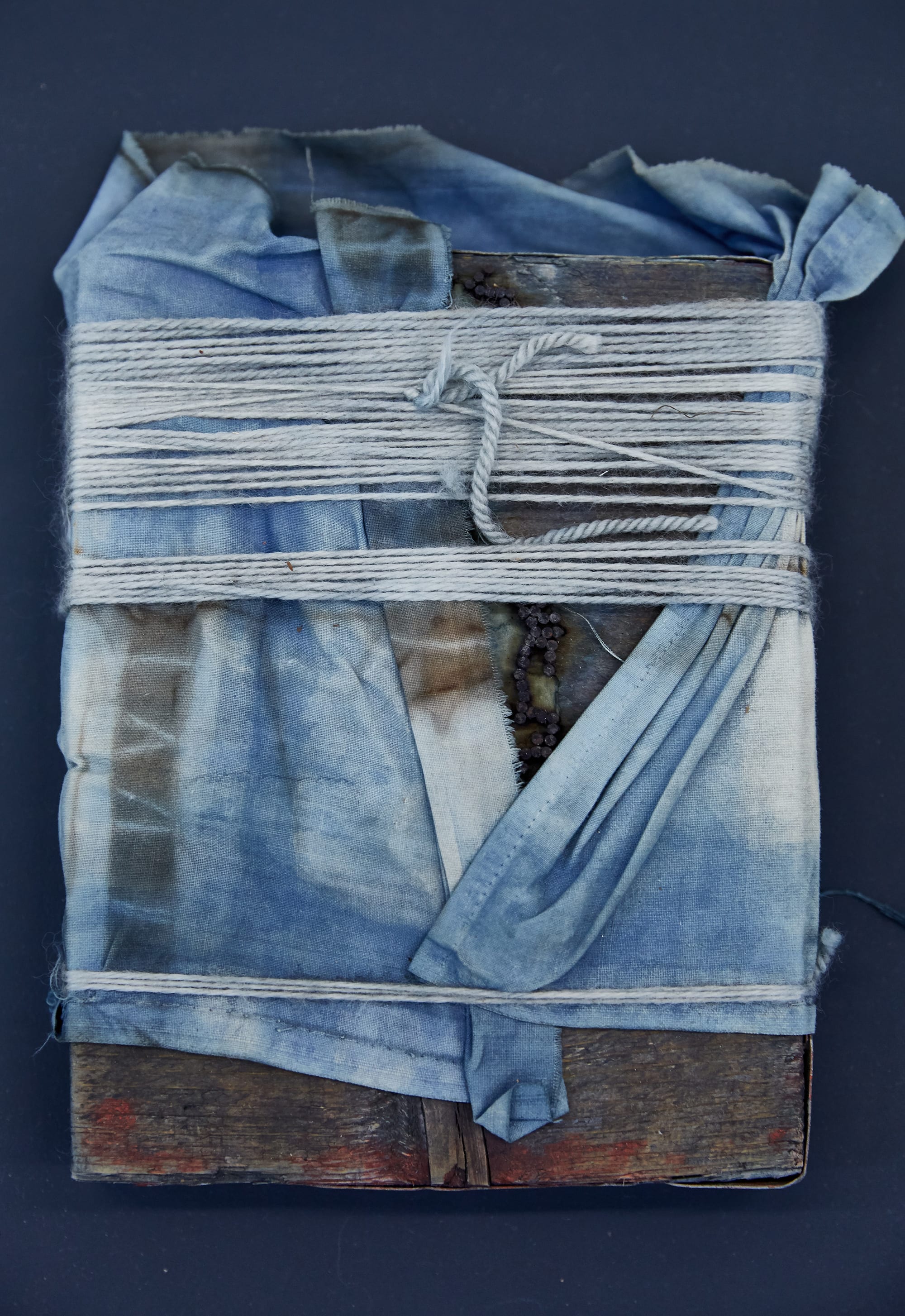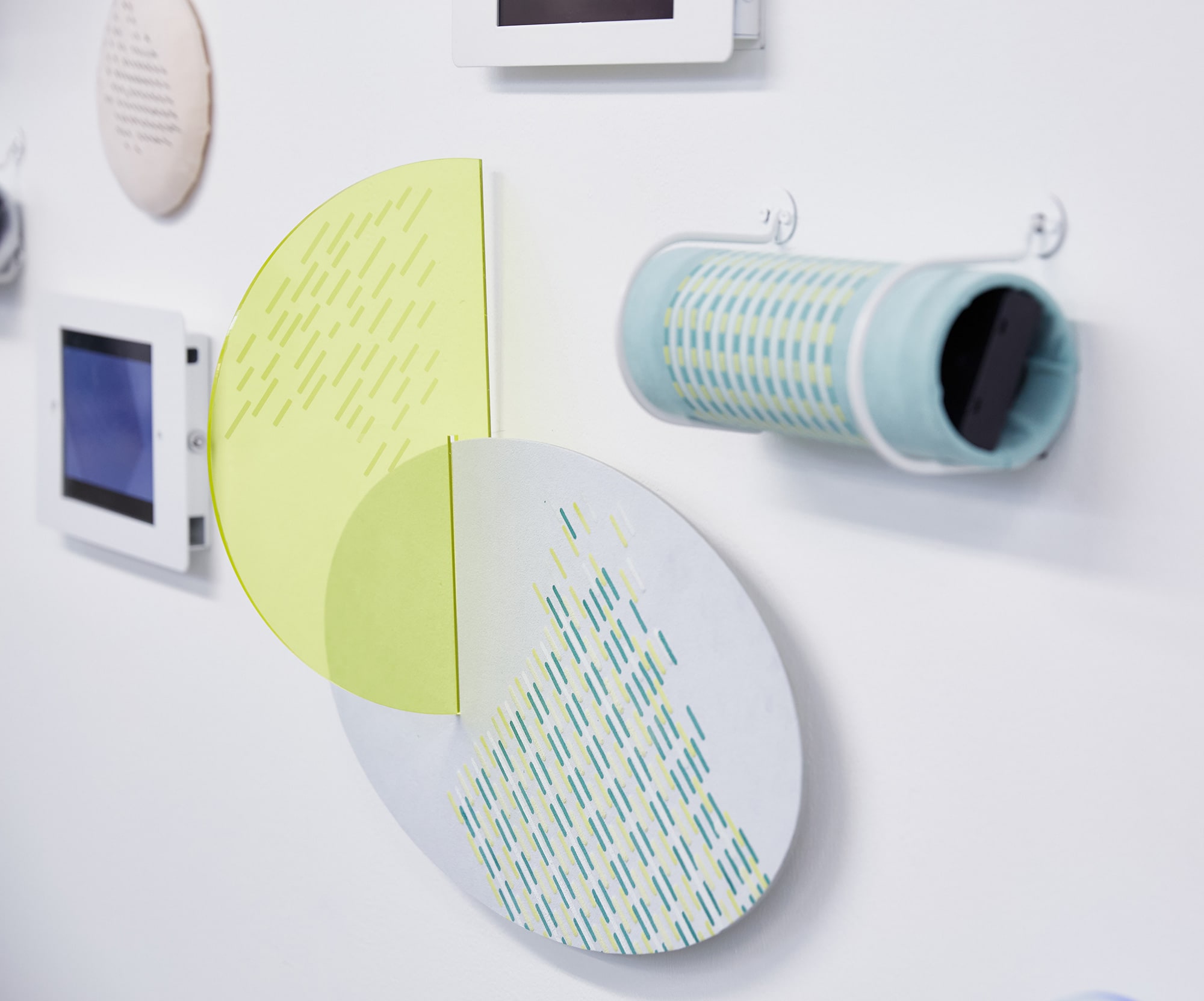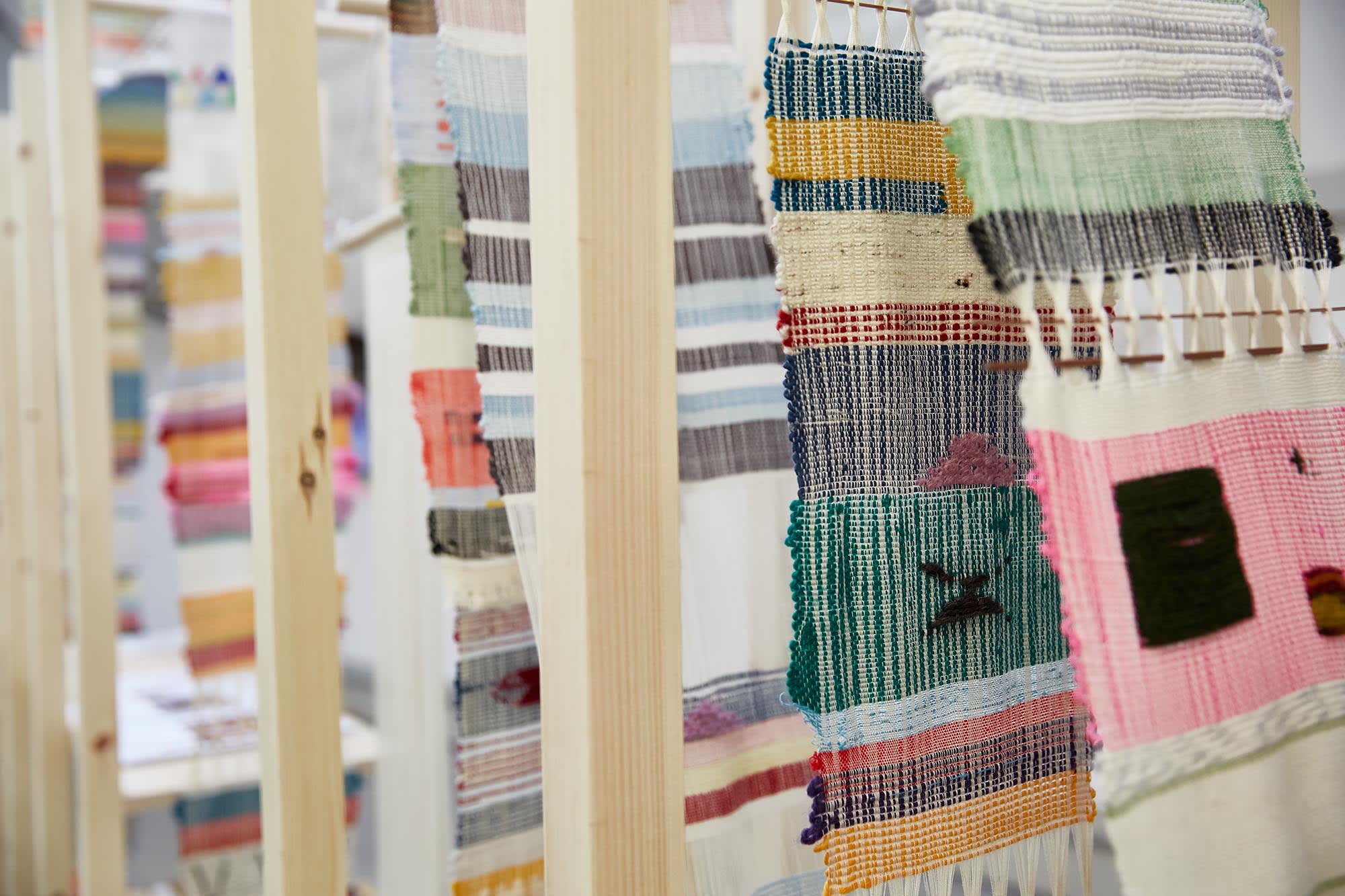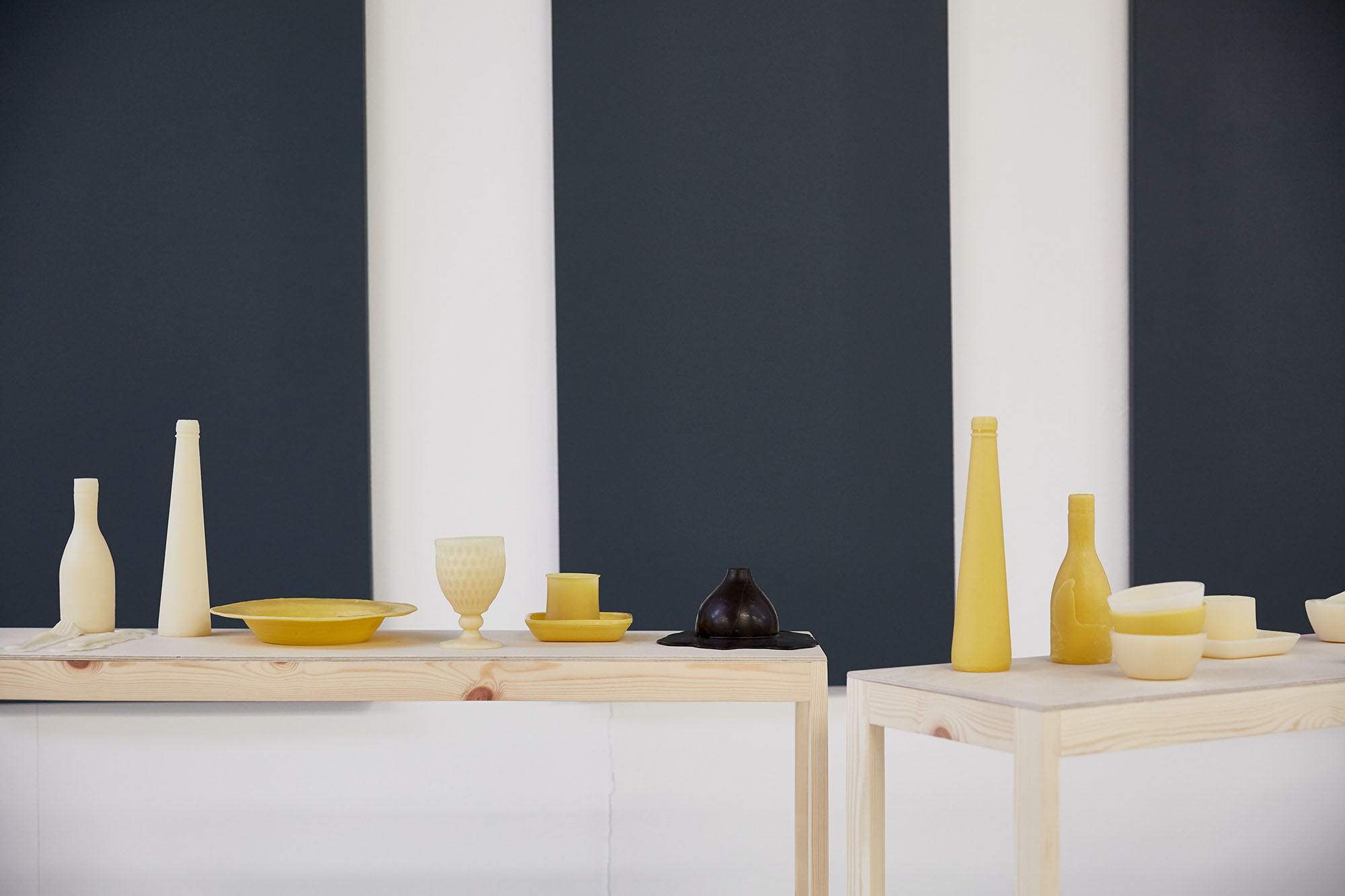Course overview
MA Textile Design encourages transformative, multi-disciplinary and collaborative approaches to design. Socially responsible, culturally inclusive design thinking and sustainable creative exploration are core values that underpin the course.
The course encourages you to take a conceptual and speculative approach. You’ll build on your existing creative practice and skills redefining these within the context of your future career ambitions.
You’ll be encouraged to explore current fields of research and situate your practice in relation to them, for example:
- Material and product lifecycles including circular design systems
- Climate justice and the environmental impacts of materials and sourcing
- Production and use of materials and products
- Material and production innovations
- Patterns of consumption and behavioural change
- Social and racial justice, including ethical labour and associated societal effects
- Community engagement and environmental issues
- The designer as activist.
The course aims to equip you with skills to develop your design identity and become a proactive designer who can influence, navigate and creatively contribute to textile design futures in the complex global contexts of our time.
What to expect
- Combining research and practice: A research-led and practice-based course, underpinned by critical design thinking, where the textile studio is a forum for discussion, study and collaboration.
- Teaching and learning environment: Your studies will be focused around a combination of taught sessions and workshops, seminars, tutorials and peer learning activities and self-directed learning.
- Emphasis on a self-directed design project: Based on your personal research and design interests, you’ll write your own design project brief in Unit 1 and continue to develop this in depth throughout the course.
- An ethical focus: We have a responsibility to contribute towards a better and more sustainable world. Throughout your course, you'll explore climate, social and racial justice and learn how to embed these principles into your creative practice.
Industry experience and opportunities
Recent MA Textile Design live and collaborative projects, both live and collaborative, developed with external partners and organisations include:
- Waste Age x Ananas Anam
- Bio-inspired textiles x Dr Veronica Kapsali - AHRC (Arts and Humanities Research Council) funded research project
- HEREWEAR - enabling local, circular and bio-based textiles
- Khadi London fabrics
- Dazzle Collective - visual art and performance via Virtual Reality and live motion capture
- Blackhorse Lane Atelier denim
- Zara Kidswear x Sustainable Design
Students are also supported to take part in national and international competitions including:
- Woolmark Performance Challenge
- Bradford Textile Society design competition
- Royal Society of Arts (RSA) student design award
- Artsthread: Global Design Graduate Show
Mode of study
MA Textile Design is offered in full-time mode and runs for 45 weeks over 15 months. You will be expected to commit an average of 40 hours per week to your course, including teaching hours and independent study.
